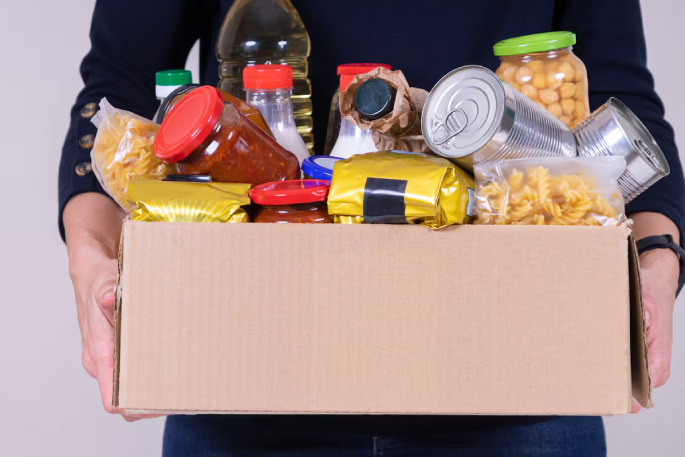THREE KEY FACTS:
- One-third of Food Hub recipients are seeking help for the first time.
- Food Hubs can only meet around 60 per cent of their communities’ needs.
- A 30 per cent decrease in the number of people Food Hubs can support compared to last survey.
The New Zealand Food Network’s Food Security Snapshot, canvassing the experiences of 60 nationwide recipient Food Hubs, looks bleak.
There has been a 30 per cent decrease in the number of people that Food Hubs are able to support compared to the previous survey as cost-of-living challenges continue to hit people’s pockets.
Economic headwinds and a fiscally challenging charity environment has meant Food Hubs, measured from January-June, are struggling to meet the current level of demand. On average, they are only able to service approximately 60 per cent of their communities’ needs.
Yesterday, Dave Letele announced he was shutting down his South Auckland foodbank because he could not keep up with the demand.
NZFN chief executive Gavin Findlay said: “While it’s still an admirable feat that community organisations are able to service hundreds of thousands of Kiwis facing food insecurity, the reality is that the demand is still high.
 Gavin Findlay said demand at Food Hubs is high.
Gavin Findlay said demand at Food Hubs is high.
“Each year, the food support sector is experiencing more and more funding challenges which limits the ability to deliver the services that our most vulnerable communities rely on. That’s why we continue to work alongside the government to take action and uplift the sector, striving to create more food-secure communities.”
Tania Varnham, operations manager at Waikato-based Huntly Food Rescue Remedy (Huntly Community Advice Trust and Social Services), said: “We struggle to provide meat, fruit and veggies; we are now having to fundraise, increasing our volunteer’s workload even more. We have had to decline repeat recipients.”
Rae Semmens, team lead at The Salvation Army Palmerston North Community Ministries, reiterates this: “Due to increased demand, we’ve had to buy more kai. Consequently, we’ve had to gently reduce the frequency of visits and the amount of food whānau can receive.”
Who is seeking food support today?
The survey found that a third of the Food Hubs’ monthly recipients were seeking help for the first time – signalling the ongoing changing face of food insecurity. The heightened cost of living continues to be the primary driver for food support, with 90 per cent of Food Hubs citing it as the top reason recipients seek assistance.
Of the other reasons recipients were seeking support, a jump in those citing unexpected bills (66 per cent, up from 58 per cent) and unemployment (65 per cent, up from 46 per cent), also shows how the tough economic landscape is having a tangible impact as many face higher expenses and job cuts.
Paula Rihia, co-ordinator at Turangi Foodbank, said: “We work very hard to provide basic needs to our small community [but] we would struggle without [their] support. Our client numbers are growing and it is a very, very hard time.
One week left to Pitch In
While the long-term ideal is to establish a collaborative, government-driven solution that enables the food support sector to create positive systemic change, the immediate need for food remains critical.
There is just one week left of NZFN’s year-long Pitch In campaign, which calls on businesses and individuals to donate bulk food and funds to help feed Kiwis in need.
With a star-studded line-up backing the cause – former rugby World Champion Piri Weepu, comedian Leigh Hart, professional rugby player Sam Slade and award-winning Special Olympics athlete Grace Payne – NZFN successfully “filled” Eden Park once (delivering 100,000 meals) and is now halfway through filling a second field. They’re urging the public and businesses to continue their support before the campaign ends on World Food Day (October 16).



1 comment
A New Way
Posted on 14-10-2024 10:49 | By Alfa male
I know this will never happen, so I guess this is a waste of time, but maybe we need to stop the excuses, “we have a small population so everything has to be expensive!” Maybe we should concentrate on providing food for ourselves and not export it all. I know that then cars, tvs, cell phones, which are imported will likely be harder to get and more expensive, but really, would you rather be well fed at reasonable cost, or have the latest cell phone ? The world is changing, it is not as it was, we are not adapting to it but still sticking stubbornly to the old way of doing things.
Leave a Comment
You must be logged in to make a comment.